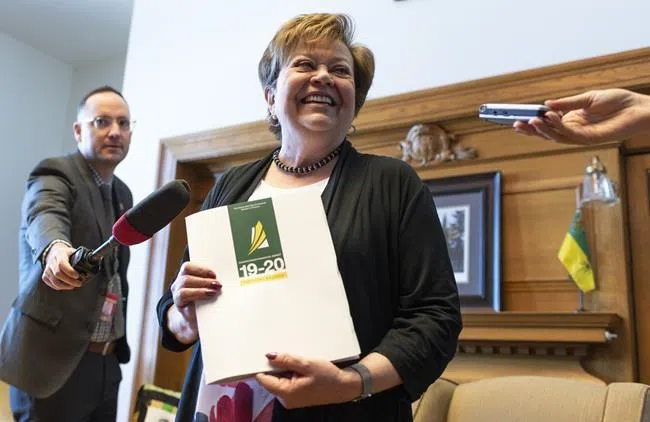
Saskatchewan government to present first balanced budget in years
REGINA — For the first time in years, the Saskatchewan Party government will present a budget that the finance minister has said is balanced.
Donna Harpauer is to release the province’s 2019-2020 fiscal plan today and she’s said the government will keep its promise to return to the black.
The plan to balance the books was set in motion three years ago under former premier Brad Wall when the province was spending about $1.3 billion more than it was taking in.
The Saskatchewan Party government knocked that figure down by increasing the provincial sales tax and cutting spending.
